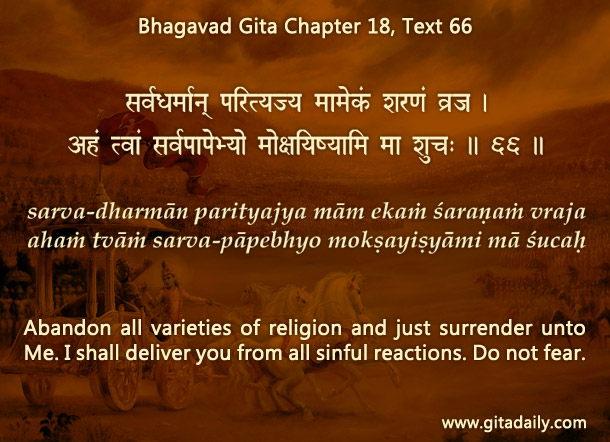The Bhagavad-gita (18.66) asks us to give up all dharma, which contextually means ordinary conceptions of right and wrong, and just surrender to God. Does this call imply that the surrendered needn’t care at all about what is ordinarily considered right or wrong? For example, does it mean that those sharing Krishna’s message can neglect human values such as courtesy and sensitivity?
Not at all.
Such values enable us to fight our lower side by avoiding selfish and hurtful actions, and to express our higher side by acting nobly and helpfully. And devotional surrender is meant to help us win the same inner war.
The Gita doesn’t ask us to give up all human values in the name of God – it just asks us to give up those values that come in the way of our service to God. For example, while sharing Krishna’s message, we may have to speak truths that may come off to some people as harsh and judgmental. When such truths need to be spoken, we shouldn’t waffle because of the fear of offending others.
But while speaking, we need to be as courteous and sensitive as possible. Bhakti certainly doesn’t license insensitivity. Far from it, as devotees, we should be highly courteous and sensitive, knowing that how we appear to people will shape whether they take up Krishna’s message or not. Pertinently, the Gita cautions that we shouldn’t agitate the minds of the ignorant (03.26), and that we should speak in a non-agitating, pleasing way (17.15).
Thus, bhakti infuses our adherence to human values with a devotional intent, thereby spiritualizing those values. Bhakti is a step up the ethical ladder, not a step down. When we harmonize human values with Krishna’s service, we can better savor and share the joy of devotion.
To know more about this verse, please click on the image
Explanation of article:
Podcast:
Download by “right-click and save”






BHAKTI IS THE GROWTH OF HUMAN VALUES